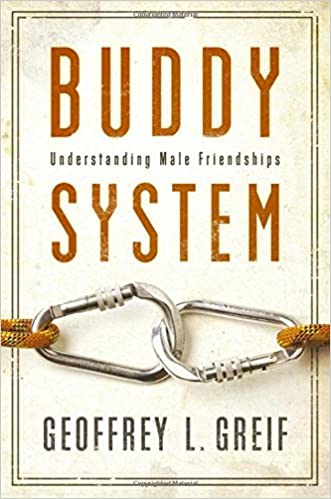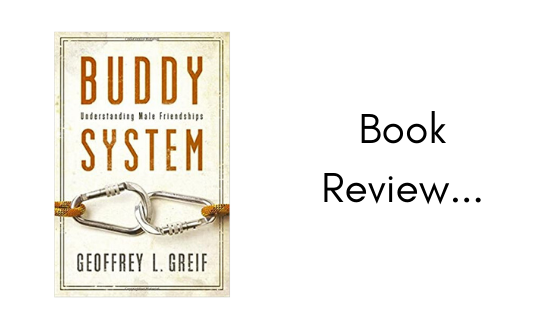This was a really good book!
I picked it up last year when I was looking to get more of a in-depth idea of how male friendships evolve over time. As is usual with most of the things I like to read, this topic isn’t discussed very much in society.
 It’s inherently weak to read a book on male friendships (at least it’s perceived that way). It’s also weak to admit that you would like to have more male friendships. Let’s be honest. It sounds pretty gay.
It’s inherently weak to read a book on male friendships (at least it’s perceived that way). It’s also weak to admit that you would like to have more male friendships. Let’s be honest. It sounds pretty gay.
As I get older, I notice how a lot of my male friends become preoccupied with family, their significant other, and the time you get to spend with them becomes less and less.
Also, as you move around the country or around the world, your ability to hang out with your high school or college buddies becomes harder and harder.
I’ve tried making friends in the business world, but I don’t like the idea of mixing the two. Also, the conversations invariably lead back to work. To me, it feels like a bit of an artificial friendship.
Thus, I wanted to learn more about how male friendships form and change over time as you age. That’s where this book came in. I’ll include some notes below. You can check it out on Amazon here.
NOTES
Buddy System Making Friends
Guys get together and have shoulder-to-shoulder relationships – we do things together, as compared with women, who are more apt to have face-to-face relationships. At the poker table, personal news is shared, but not with the expectation of a longer support session.
Deeply personal topics are reserved for discussions with must friends, it’s not for table talk.
Friends who interact while doing some activituy. Women more often have face-to-face friendships in which talking is the primary activity.
Men do not show as much physical affection or give as many compliments to each other.
Women learn that talking is the manner through which intimacy is created and maintained, whereas males use talking to accomplish things. Brant Burleson.
Men have trouble showing tenderness unless it is within the context of sports, politics, or memorializing war heros. Lionel Tiger
Aristotle said that you can only be friends with a peer (not someone who you have something to gain) and that you must have shared sale or a common problem with someone.
First, friendships are maintained at a physical and emotional distance because men fear emotional and physical closeness, which they link to homosexuality.
Robert Bly – Iron John. Men need to experience collective masculinity and some men become too feminized and soft by surrounding themselves with women.
Women friendships are more self-disclosing and emotionally closer.
In order for a close relationship to become a friendship, the people must be equals.
Many men have a few people whom they trust, but who they don’t feel extremely close. They may disclose personal information, but it will more happen by chance .
Rust friends have longevity as underpinning of the relationship.
Must, Trust, Rust, or Just.
Trust friends can provide sounding board without the emotional weight a must friend has.
Just friends are people who you get together with to share an activity, but don’t necessarily trust them, know them well, or if they will keep things private.
Being understood is important in friendship. Communicating, sharing, caring, not being judged.
Also, trust and loyalty. Dependability. Common things to do.
The least important is demonstrating friendship with concrete acts like loaning money or helping move.
Without trust, friendships do not work. One act of loyalty is sticking up for your friend.
Dependability is ability to rely on when needed.
Without some sense of shared interests or history, it is difficult to establish or maintain a friendship over time.
To be someone’s best friend requires a minimum investment of time. More than that, it takes emotional energy. Caring about someone deeply is exhausting.
Children learn from their fathers about friendships, and so fathers must model healthy friendships with other adults.
If you feel like you love the same things, there isn’t as much a need to talk. Men often need shared, shoulder to shoulder activities to feel comfortable being together, as compared to women, who have face-to-face friendships that imply greater intimacy. Many men are not comfortable just sitting around and talking with each other face to face.
What men do together: sports-related activties, communicate, drink/bars, lunch/dinner.
Talk about sports, trips, going away places, trying to make the house better.
It is not the intention of the get together to help men get closer. Friendly competition, teasing, joking, politics, and business-related talk are the subjects and modes of communication.
How men make friends: commonalities, work, reach out and be friendly.
You get to know them, chat, and find other common areas. It develops from there.
They must live in your area or have some kind of association usually.
Effort and willingness to engage with others is a hallmark of friendship.
Drifting apart – communication wanes and you stop doing things together.
Men feel most comfortable with a perceived level of masculinity similar to theirs. Similar testosterone levels.
When observing fathers you will pattern life after him. Either consciously be like or not like.
You learn there are people you depend on, but not who you agree with all the time.
Leisure time did not exist like it does today.
Need to make time for it .
Enjoy camaraderie
Women are better at expressing emotions as well as remembering emotionally laden details.
Women friendships are more one to one. Men are more groups related. Less self-revealin.
Hot woman will have ugly friends so guys hit on her.
Women give each other validation.
To maintain friends you must keep up a healthy dialogue.
In 30s, life becomes more routine and predictable, so less opportunity to spontaneously pick up with friends. Shift life to accommodate family.
Lose friends when maintaining from logistical standpoint is hard. Or apathy.
Must be part of interaction on at least a yearly cycle. Relevant to life now.
Women friendships more complicated and emotionally intense. Men friendships more functional.
